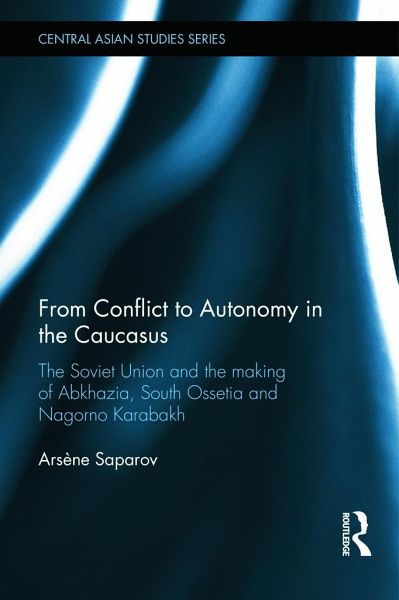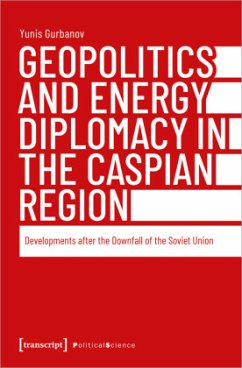
From Conflict to Autonomy in the Caucasus
The Soviet Union and the Making of Abkhazia, South Ossetia and Nagorno Karabakh
Versandkostenfrei!
Versandfertig in über 4 Wochen
196,99 €
inkl. MwSt.
Weitere Ausgaben:

PAYBACK Punkte
98 °P sammeln!
From Conflict to Autonomy in the Caucasus analyses the relation of the Soviet nationality policy and modern ethnic conflicts in the post-Soviet space. The book explains why the Bolsheviks granted autonomous status to ethnic minorities in the South Caucasus, focusing in particular on Abkhazia, Nagorno-Karabakh and South Ossetia. It questions the assumption that the Soviet leadership deliberately set up ethnic autonomies within the republics, thereby giving Moscow unprecedented leverage against each republic.By looking at the reasons why autonomy was awarded to these ethnic groups, the book high...
From Conflict to Autonomy in the Caucasus analyses the relation of the Soviet nationality policy and modern ethnic conflicts in the post-Soviet space. The book explains why the Bolsheviks granted autonomous status to ethnic minorities in the South Caucasus, focusing in particular on Abkhazia, Nagorno-Karabakh and South Ossetia. It questions the assumption that the Soviet leadership deliberately set up ethnic autonomies within the republics, thereby giving Moscow unprecedented leverage against each republic.By looking at the reasons why autonomy was awarded to these ethnic groups, the book highlights the roots of the modern conflicts in the Caucasus.













